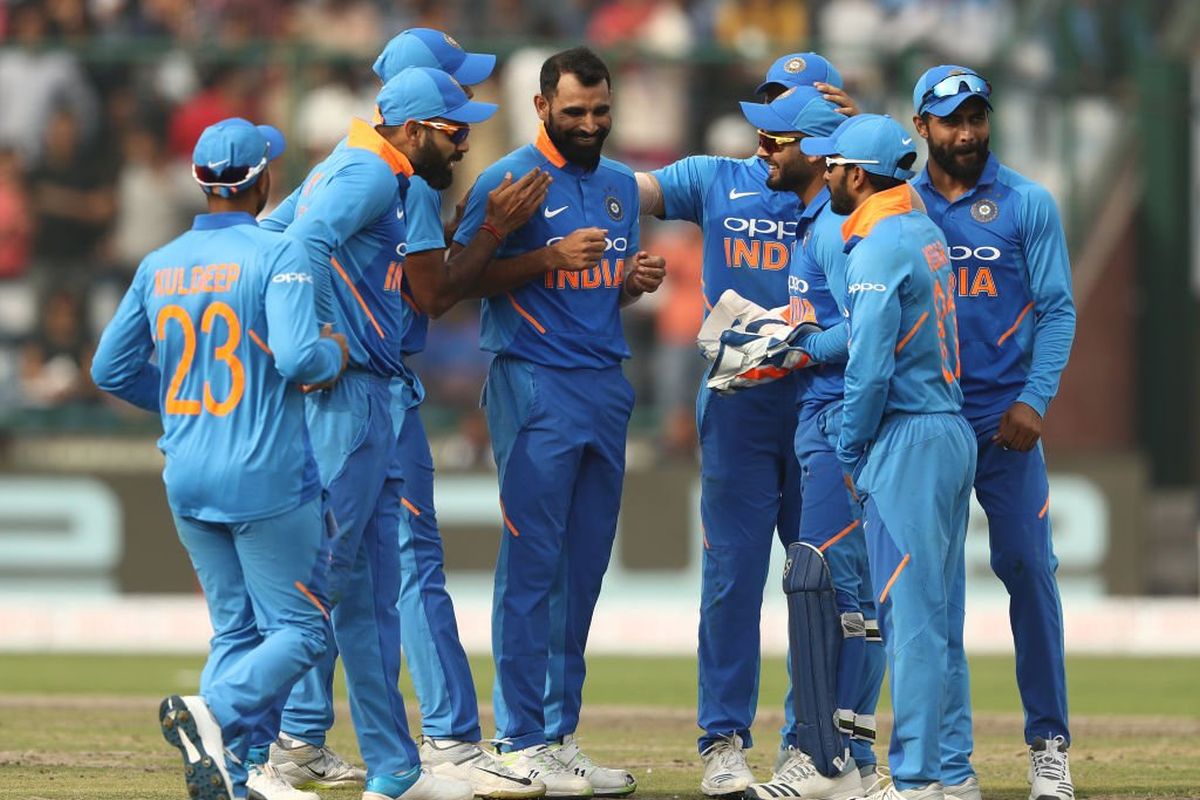India went out as a well-oiled machine in their final series before the T20 World Cup, and convincingly won the first two matches to pocket the three-match series against Afghanistan, leaving Wednesday’s third T20I in Bengaluru to refine their approach in the shortest version.
From the Indian team’s perspective, the most important aspect of this series has been the change in approach, evident from their successful chases of 159 in 17.4 overs and 173 in 15.4 overs. In the build-up to the World Cup, this marks a significant change in strategy, doing away with the previous tactic of building momentum for a late order flourish.
Advertisement
With one eye on a clean sweep, the game holds importance to a few players warming the bench besides the skipper Rohit Sharma, hoping to arrest the series of ducks on return to the format after 14 months.
After being run-out on duck to a horrible mix-up in Mohali, Rohit failed to open his account yet again in Indore, where India won by six wickets. There was no lack of intent from the 36-year-old on both occasions but it was perhaps because of the batting depth in the team that tempted Rohit to hit fifth gear from ball one.
However, having said that heading into the World Cup, Rohit desperately wanted some international runs under his belt and the shorter boundaries at the M Chinnaswamy Stadium could be the perfect place for him to get his mojo back.
In contrast, Virat Kohli, who also made a comeback after 14 months, was quick to adopt India’s World Cup plan of batting with wild intensity, scoring a freewheeling 29 off 16 balls. His approach on Sunday gave glimpses of the right-hander willing to do away with the set template of solely banking on timing the ball. Kohli, who has been vulnerable against spinners in T20 cricket and also averse to taking risks against the slower men in the past, went all out targetting them past the boundary on more than a coupe of occasions in Indore.
Back in his IPL-home ground, Kohli knows the Chinnaswamy in and out, and will be expected to carry on the momentum.
More than anyone, this series has been a turning point for one man in the Indian team —Shivam Dube, trying to grab most of the opportunities in the absence of injured Hardik Pandya. With two consecutive match-winning half centuries and a couple of wickets with his seam bowling, the lanky Mumbai all-rounder has already thrown his hat into the ring for WC selection, barring a poor IPL.
Similarly, Yashasvi Jaiswal, the designated opener, has justified head coach Rahul Dravid’s faith with an explosive half century and is expected to get his second game of the series. Jaiswal had missed the opener in Mohali.
Kuldeep, Sanju likely to get a game
While Dube and Jaiswal are likely to retain their places, the third T20I could see the return of Sanju Samson in place of Jitesh Sharma. Sanju has not played any match so far with Jitesh donning the wicketkeeping gloves. With all the experience he owns, the Kerala right-hander would be eager to get into action.
Another change that India could make is bringing in Kuldeep Yadav in place of Ravi Bishnoi as the wrist spinner. Bishnoi has been India’s highest wicket-taker in the format in the past one year, and has already played his part in the series win. Kuldeep, meanwhile, picked for the Test series against England, will be happy to get some game time, albeit in a completely different format.
The Indian team management may also want to include Avesh Khan in place of Mukesh Kumar, and see how much the lanky pacer has improved in the shortest format of the game.
As far as the visitors are concerned, they are yet to win a T20I against India, and will once again start as the underdogs. Having said that, it will be foolish for India to take things for granted as the Afghans have proved their might on their day. A win against India will also boost Afghanistan’s morale before playing Sri Lanka and Ireland in their build-up to the marquee tournament in June.









